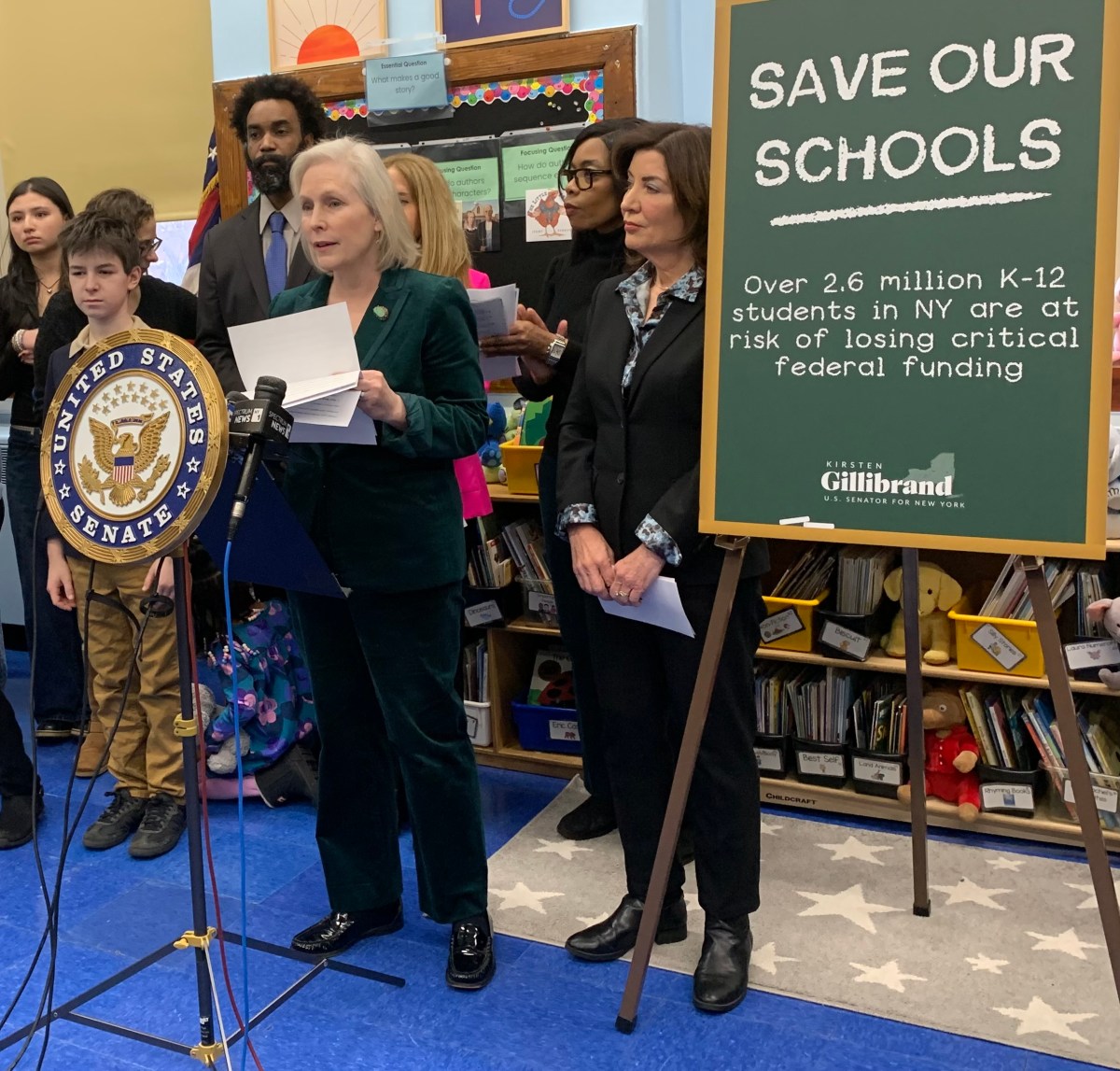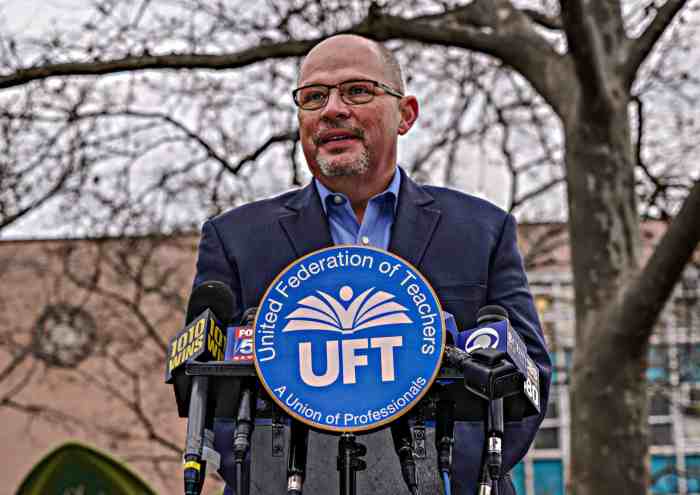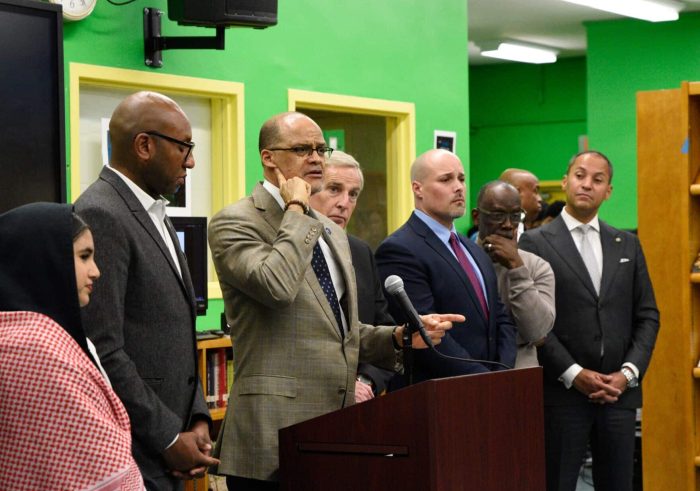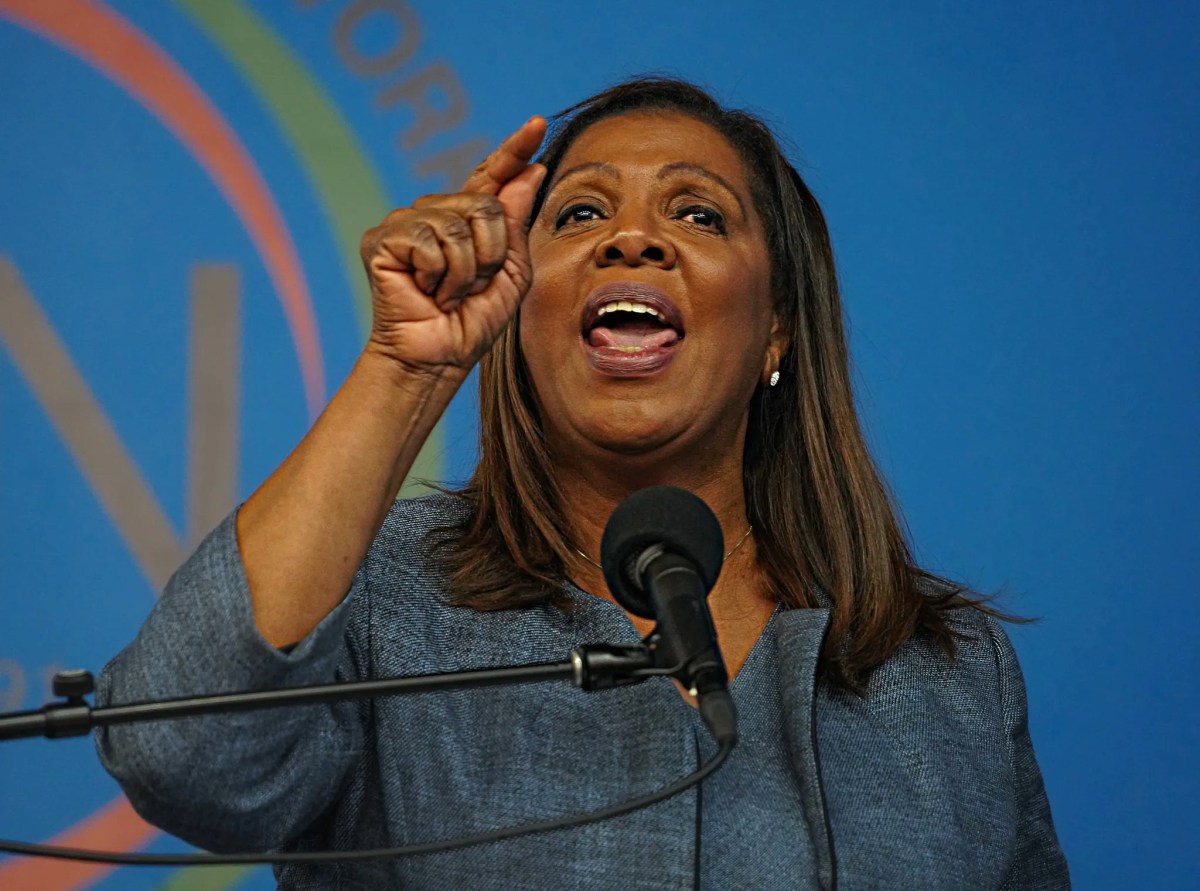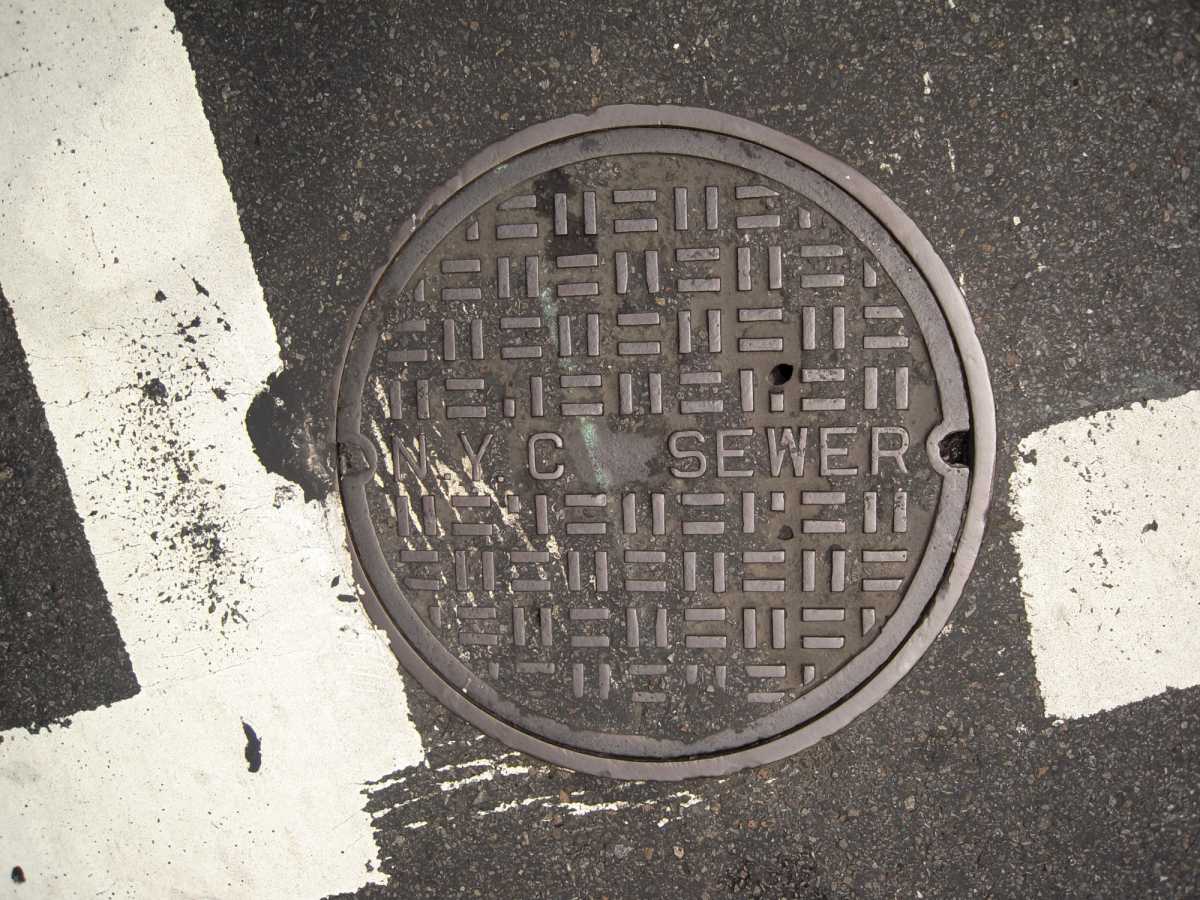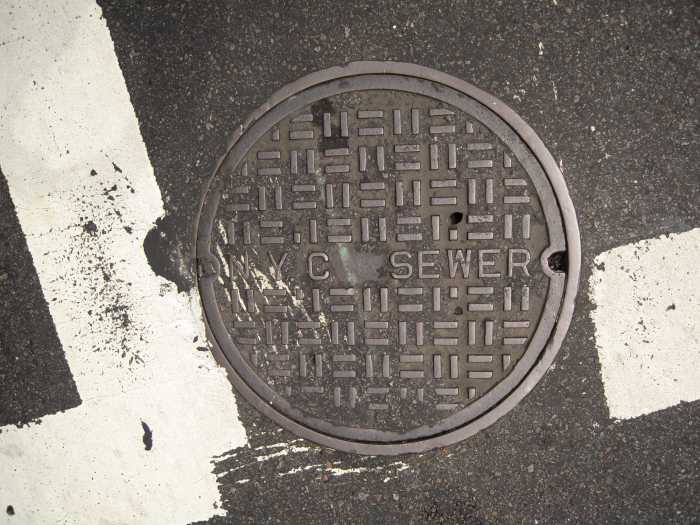New York’s children and schools could lose vital services to support their educational needs if President Donald Trump and Congress approve the dismantling of the U.S. Department of Education, Gov. Kathy Hochul and U.S. Sen. Kirsten Gillibrand warned on Sunday.
Over 2.6 million kindergarten through grade 12 students in nearly 5,000 public schools throughout New York stand to lose critical funding if the education department closes, Gillibrand, New York’s junior senator, said during a press conference at P.S. 183 on the Upper East Side.
The senator explained that services that fall under Title 1 could be cut. Title 1 is a federal program that gives supplemental financial assistance to schools and school districts that have a high percentage of low-income families and pay for programs such as special education, early childhood education, and early intervention services for students and infants with disabilities.
She also said students in the state with disabilities could lose nearly $1 billion in annual support. Extracurricular activities could also be impacted if the federal education department is slashed.
“You can’t imagine what working families will go through if kids aren’t busy after school and don’t have the support that they need,” Gillibrand said.
Gillibrand said “hundreds, hundreds, and hundreds” of New Yorkers contact her office every day with concerns about their children’s education.
“Since its creation by Congress in 1979, the Department of Education has played a central role in this country by making sure students don’t fall behind their peers; it helps spur economic progress, allows us to stay competitive on the global stage, and allows our economy to have the workers that they need.”
No federal money = tax hikes in New York
Gov. Kathy Hochul, who also attended the press conference, said abolishing the DOE would have a massive impact on New York–including more taxes.
“This is $5.5 billion that the state receives annually from the Department of Education; $3.2 billion goes directly into our budget,” Hochul said, adding that much of it also goes into localities. “If that money is jeopardized, what I can tell you will happen is if localities lose that money, they will have to raise taxes.”
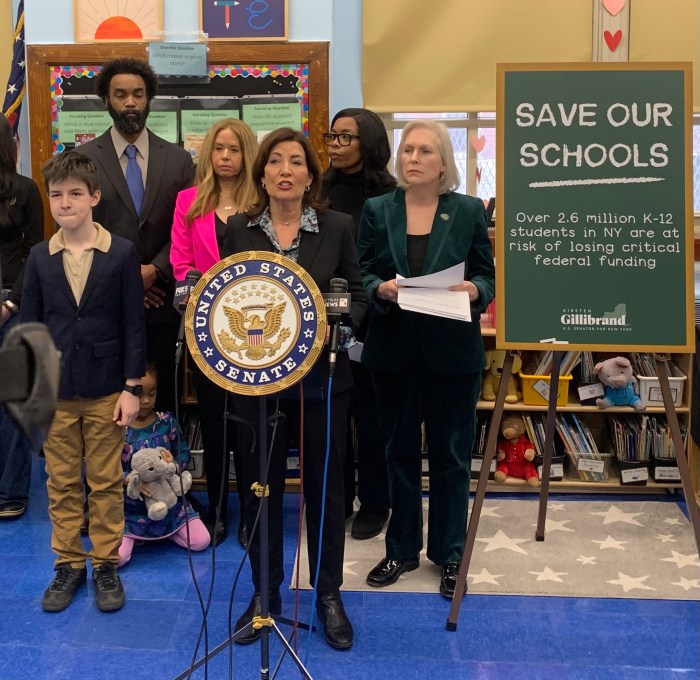
Trump’s call for the department’s overhaul comes at a time when student reading skills continue to fall drastically. The National Assessment of Educational Progress (NAEP), also known as the Nation’s Report Card, shows significant declines in reading that are not back to pre-pandemic numbers.
In fact, last year, average reading scores on the report declined by two points for both fourth- and eighth-grade students compared to 2022. This steepens the three-point decline seen in both grades between 2022 from 2019, the report showed.
However, Randi Weingarten, president of the United Federation of Teachers, said cutting Title 1 funding will only make things worse.
“What Title 1 does is support reading specialists all across NYS to help create and ensure that kids can level up in reading,” she said. “That’s what we’re talking about when say ‘these cuts.'”
What does Trump support?
An Executive Order that Trump signed on Jan. 29, states that he will “support parents in choosing and directing” the upbringing and education of their children.
“When our public education system fails such a large segment of society, it hinders our national competitiveness and devastates families and communities,” the order states. “For this reason, more than a dozen states have enacted universal K-12 scholarship programs, allowing families, rather than the government, to choose the best educational setting for their children.”
The order alone, however, cannot abolish the U.S. Department of Education. Both houses of Congress must approve legislation to do so.
According to a city Department of Education spokesperson, it is unclear when or if the proposed federal changes will impact NYC public schools.
“We have not received guidance from the federal government about the potential impact on our programs or services and will closely monitor ongoing developments,” the spokesperson said.
Read More: https://www.amny.com/politics/



